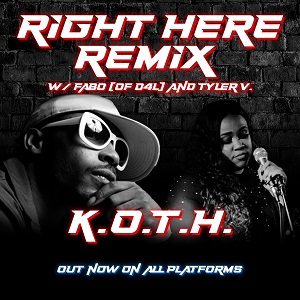
The Music Industry: Legal and Commercial Aspects
May 10, 2024
The music business is an intricate ecosystem reliant on both legal and financial elements for its existence. The landscape is defined by various elements ranging from distribution channels to intellectual property rights; artists, labels, publishers, and other stakeholders who navigate its complexities must understand these legal and commercial factors to safeguard their labor, gain fair compensation, and survive in this cutting-edge industry. Being knowledgeable and proactive is essential for individuals who wish to ensure long-term prosperity and longevity in this cutting-edge field.
Intellectual property rights are essential in protecting musicians’ artistic, lyrical, and compositional music works. Copyright law grants composers exclusive control of their compositions and recordings through reproduction, distribution, and public performance – including sound recordings and melodies with lyrics underlying them. To effectively manage these rights, musicians frequently work with music publishers who handle copyright administration and royalty collection on their behalf, ensuring they receive fair compensation for their efforts.
Contracts form the core of music business interactions and exchanges among musicians, record labels, publishers, and other stakeholders. These agreements outline each party’s rights, obligations, and financial arrangements – such as publishing agreements, performance contracts, licensing agreements, recording contracts, or recording studio agreements – including topics like distribution rights, ownership rights, royalties arrangements, promotional obligations, etc. Negotiating favorable terms is crucial for artists and industry professionals as these contracts directly impact financial security and career pathing.
Licensing is at the heart of music industry economics, enabling copyrighted songs to be used legally across various platforms and media. Music licensing encompasses multiple rights, such as mechanical licenses for distribution and reproduction, public performance licenses for live events and broadcasts, and synchronization licenses for visual media. Royalties are the primary source of revenue for musicians and copyright holders in the music industry, obtained via licensing agreements. Royalties from musical composition exploitation depend on factors like usage type, distribution channels, and contractual conditions, thus demonstrating an intricate connection between income creation and licensing agreements.
Digital technology has transformed music distribution, expanding access to an international audience while altering consumption patterns. Online stores with unparalleled accessibility for listeners, such as YouTube, Spotify, and iTunes, have emerged as major distribution methods. In case you need help writing about music, essay writing service can help you. These methods provide greater market access but raise questions of fair pay and the viability of traditional revenue structures—yet these platforms continue to play a pivotal role in shaping innovation in the music business while changing how consumers behave in this digital era.
Music publishing is an essential element of the music business ecosystem that facilitates the licensing and use of musical works. Publishers serve songwriters and composers by managing copyright enforcement, royalties, rights licensing agreements, and copyright enforcement on their behalf. Performance rights organizations (PROs) like ASCAP, BMI, and SESAC represent publishers and composers when collecting performance royalties; additionally, they negotiate license agreements between artists performing their works publicly in theaters, broadcasters, or digital platforms to ensure fair compensation of artists for performing them in public performance settings.
Artists now have access to new revenue streams through brand collaborations and sponsorships that offer financial aid, publicity opportunities, and potential collaborative relationships. Companies frequently partner with musicians to sponsor festivals, tours, and other events, using their platforms to connect with potential customers and increase brand recognition. If you are also a writer, you can write papers for money. Brand partnerships often extend beyond conventional marketing avenues and involve merchandise and product endorsements in music videos, social media campaigns, and experiential activations as part of these relationships. While partnerships might bring artists more money and marketing opportunities, they must remain true to themselves and their brand to maintain creative integrity and connect with an audience.
The profound change in the music industry is a result of a number of factors, including market upheavals, technological innovation, and shifting consumer behavior. Long-standing revenue streams have been upended by digital distribution platforms and subscription streaming services, which have increased music accessibility for all while upending traditional income models that depend only on physical sales or downloads. Creators no longer have to rely on conventional gatekeepers to edit or restrict their work because of the growth of independent musicians and direct-to-fan platforms. But in order to survive and adapt in a constantly changing economy, artists and other professionals in the field still need to keep up-to-date with knowledge of new trends, regulatory frameworks, and market dynamics.
Overall, the legal and business facets of the music industry are intricately interwoven, shaping relationships, rights, and sources of income that shape its trajectory. To remain successful in an ever-evolving market, artists, labels, publishers, and other stakeholders must navigate its intricacies with diligence, inventiveness, and flexibility – taking care to keep up with intellectual property legislation, contracts, licensing schemes, distribution routes and changing business models that could potentially threaten them in terms of their earnings or even survival.
View Original SourceBreaking News
- Rapper Says He’s Homeland Security After NYPD Cop Roasted For Performing As Stripper In Video
- Lizzo Slams “Racist” Sampling Laws That Target Hip-Hop
- Cam’ron Reveals Truth Behind Booking Damon Dash’s Son “Your Son Was Broke”
- LGP Qua Remembered With Two Streets Named In His Honor
- Rampage Jackson’s Son facing Prison Stint Over Wrestling Beat Down
- Kneecap Vows To Fight After Canada Bans Rap Group From The Country
- Chadwick Boseman’s Hip-Hop Play “Deep Azure” Set To Premiere
- Chance The Rapper Defends Ben & Jerry’s Co-Founder After Resignation Over Gaza Stance
- Kanye West Goes Nuclear On Kris Jenner Over Meds – “I’d Rather Be Dead”
- Cardi B Bolts To No. 1, Breaking Nicki Minaj’s Speed Record



